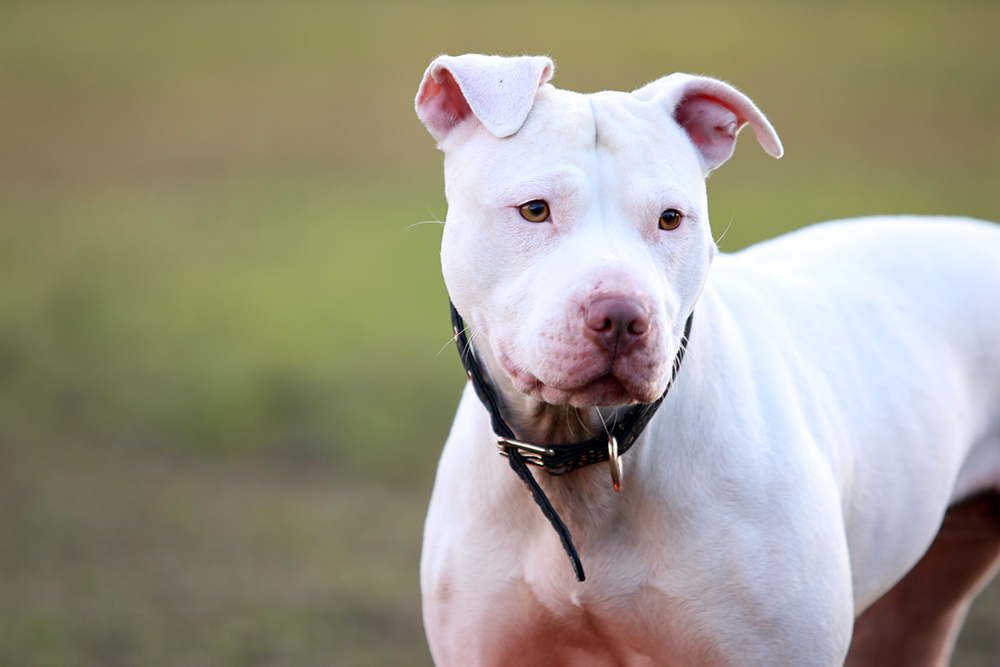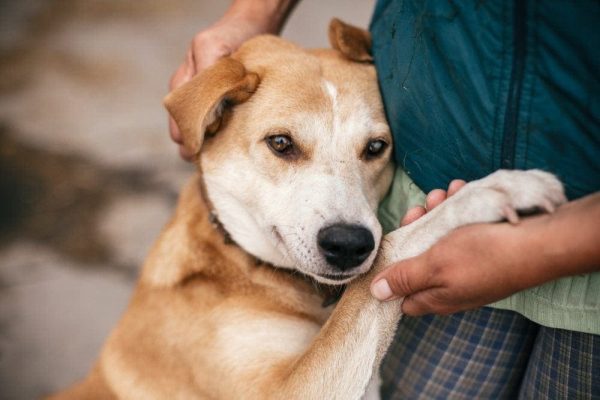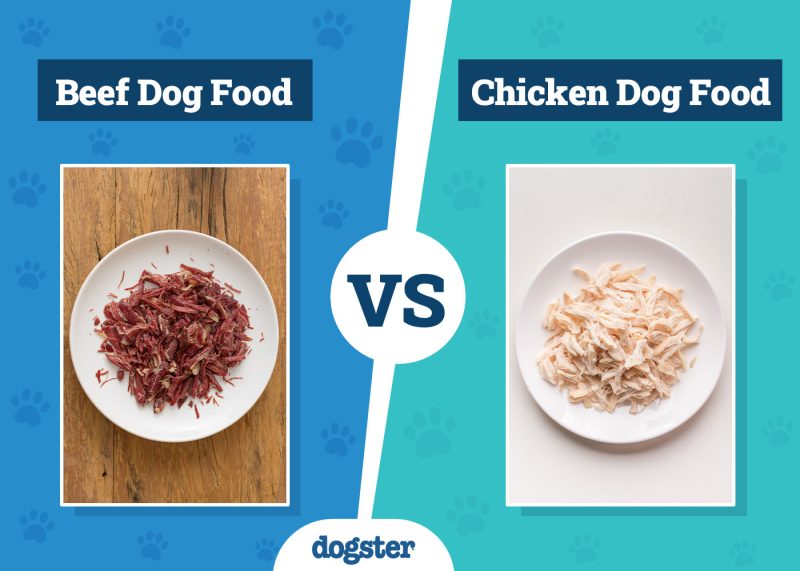In this article
Certain dog breeds have a general public reputation. Some dogs, like Golden Retrievers and Labrador Retrievers, have reputations for being popular companion dogs. Other dogs, such as Border Collies and Poodles, are regarded as highly intelligent breeds.
Unfortunately, some dog breeds have negative reputations that they often don’t deserve. The Pit Bull is notorious for being an inherently aggressive dog, mostly thanks to their history of being used for bull baiting and dog fighting. The negative public opinion on Pit Bulls is often based on inaccurate and misinterpreted data and information. As a result, Pit Bulls face discrimination that makes life more difficult for them.

What Is Pit Bull Discrimination?
Pit Bull discrimination refers to the generally negative perception of Pit Bulls. Pit Bulls have a reputation for being aggressive, untrainable, and unsafe. As a result, some people can view all Pit Bulls as dangerous dogs rather than getting to know them as individuals.
Pit Bulls aren’t a specific dog breed. It’s a term that refers to types of dog breeds that share similar appearances. Examples of dog breeds that are categorized as Pit Bulls include the American Bully, American Pit Bull Terrier, American Staffordshire Terrier, Staffordshire Bull Terrier, and American Bulldog. These dogs tend to have muscular builds, deep chests, and short muzzles, and they can be treated unfairly simply due to their appearance.
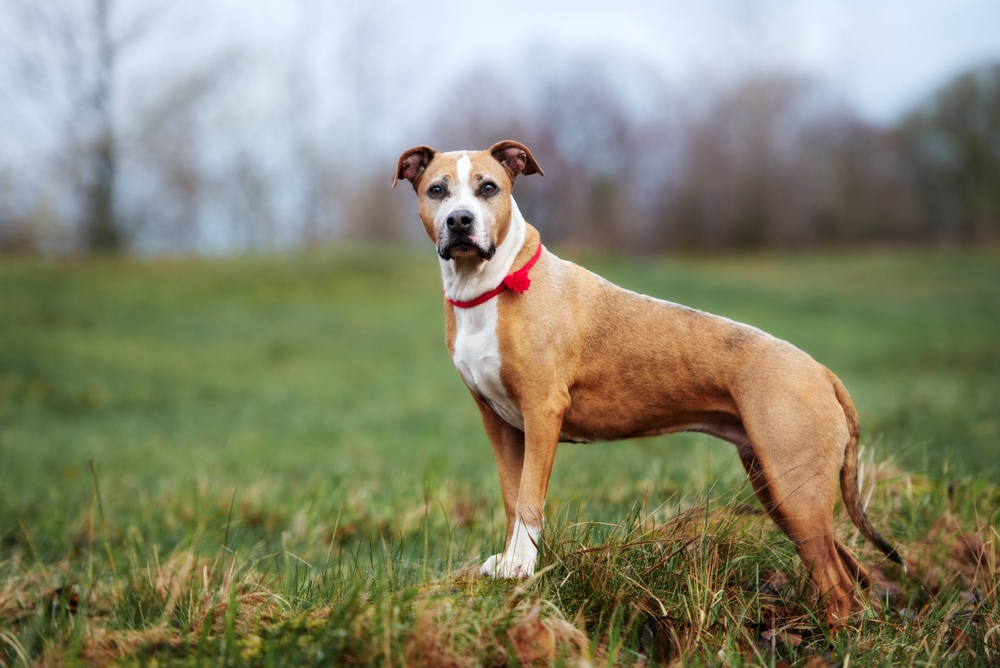
How Did Pit Bull Discrimination Begin?
Pit Bulls have a long history with humans. The first Pit Bulls originated in the United Kingdom, and their lineage can be traced back to the early 1800s. They were bred from Old English Bulldogs and were used for bull and bear baiting. Bull baiting was eventually banned in 1835, and Pit Bulls were then pitted against rats. They got their name because they were placed in pits so that the animals couldn’t escape.
Pit Bulls continued to have ties to fighting, and the ones that followed their owners when they immigrated to the United States became the American Pit Bull Terriers we know today. The public opinion of American Pit Bull Terriers was fairly positive during World War I and World War II. They were known for their friendliness, bravery, and tenacity, and they were called the “All-American Dog.”
Public opinion shifted around the late 1970s when the US Congress amended the Animal Welfare Act of 1966 and made dog fighting illegal in all 50 states. Unfortunately, this amendment caused more people to seek Pit Bulls for underground dog fights. They were bred for the purpose of profit, and temperament and socialization were disregarded.
In the 1980s, media coverage started to focus on the dangers of Pit Bulls, which fed into the fear that people may have had of them. One of the consequences of bad press was the development of breed-specific legislation (BSL). BSL enabled states and cities to ban certain breeds because of their aggressive and dangerous reputations, and Pit Bulls were included in banned dog breed lists.

Where Do You See Pit Bull Discrimination?
While the fear surrounding Pit Bulls is lessening, they still have a bad reputation that follows them around. Some states have repealed their BSL, but other states still have banned dog breed lists with Pit Bulls on them. You can also see Pit Bull discrimination in animal shelters and rescues because they may be less likely to get adopted due to misinformation of being aggressive toward children and other dogs and their inability to be rehabilitated.
Homeowners insurance companies may also have dog breed restriction lists. So, it can be difficult for Pit Bull owners to get insurance even if they have the most well-behaved Pit Bull. Similarly, landlords and renters can have breed restriction lists, which can significantly decrease housing options for Pit Bull owners.
Advantages of Adopting a Pit Bull
Pit Bull breeds are actually more commonly found as companion dogs that love people. They can be very affectionate with their families and often have a silly side to them. They typically make good family dogs, and many of them are gentle with children and make excellent playmates. Pit Bulls tend to develop a strong loyalty to their owners, and they do well in obedience training once their owners have earned their trust.
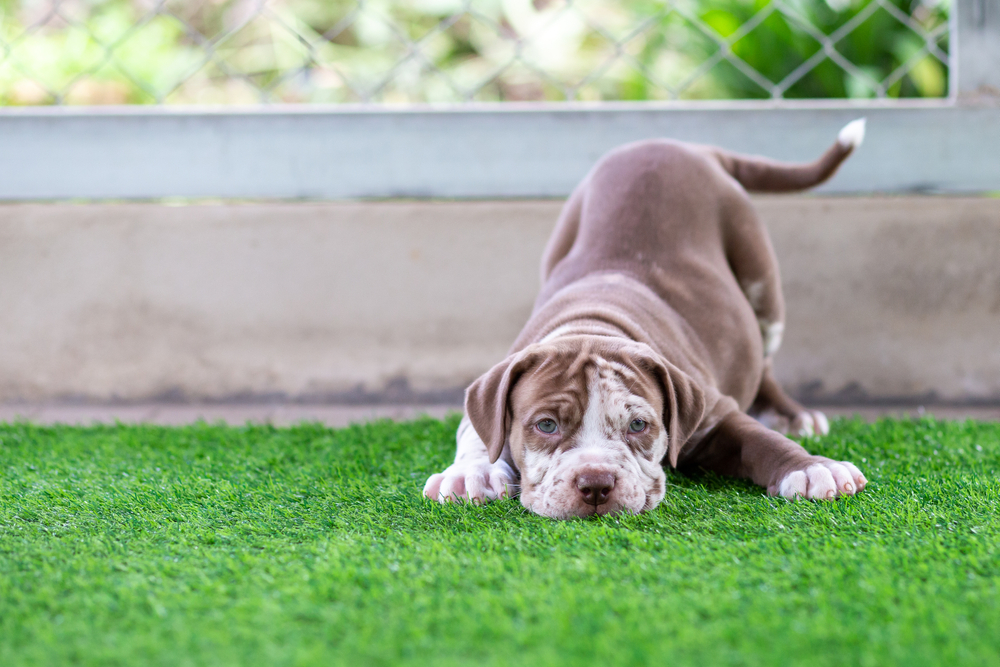
Disadvantages of Adopting a Pit Bull
As with any dog breed, Pit Bulls may not be the best fit for some people. They have a tendency to be strong-willed, and they can be challenging for inexperienced dog owners to train. Pit Bulls also require consistent socialization opportunities that enable them to get used to new experiences and build positive associations with human and animal interactions.
Improperly trained Pit Bulls can become a liability because they’re very strong. Pit Bulls that show signs of aggressive behavior can end up doing a lot of damage. Therefore, they must be with owners who have the time to invest in solid obedience training.
Since Pit Bulls are stigmatized, it can be difficult to find a new home and access certain services. Different states and cities have individualized BSL, so you’ll want to see what the particular rules are where you live. Some dog parks, grooming services, and boarding services may also place a ban on Pit Bulls, so it can be challenging for Pit Bull owners to find pet services that accept their dogs.

Frequently Asked Questions (FAQ)
The dangers of Pit Bulls are often attributed to a misquoted and misinterpreted study on dog bite fatalities that was published in the Journal of the American Veterinary Medical Association in 2000. The study reviewed data on dog bite fatalities between 1979 and 1998 and included dog breeds involved in these incidents. However, it wasn’t meant to identify or make specific dog breeds responsible for fatal dog bites.
The Pit Bull was one of the dog breeds named in this study, and they became the face of inherently aggressive dogs. However, most dog experts agree that a dog’s aggressiveness is more likely to be attributed to their environment and their upbringing rather than their breed.
Do Pit Bulls have locking jaws?
A common myth about Pit Bulls is that they have locking jaws, and it’s impossible to pry something out of their grip. It’s true that Pit Bulls are strong and persistent dogs, so it can seem like they have locking jaws. However, Pit Bull jaws are no different from the general anatomy of canine jaws. Pit Bulls do have a tendency to bite and shake, but this trait is common in other terrier breeds, as well, not just Pit Bulls. They can also be trained to release anything that they’re holding in their mouths.
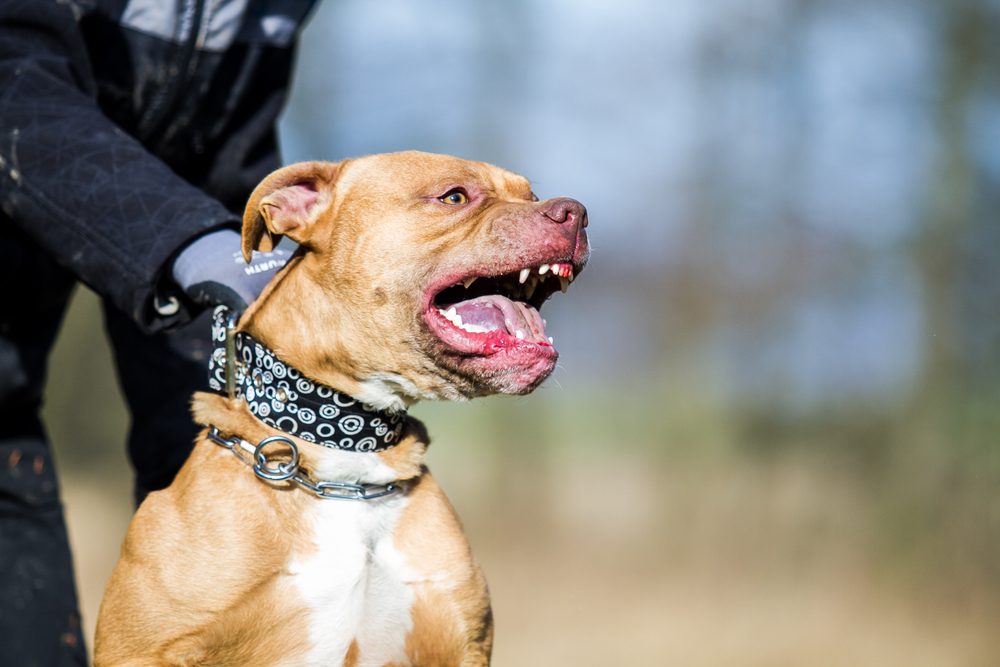
What are some things I can do to help end Pit Bull discrimination?
Fortunately, many animal rights activists and advocacy organizations are actively working to end Pit Bull discrimination. Organizations like PETA and the ASPCA have public statements against Pit Bull discrimination and BSL.
You can help end Pit Bull discrimination by supporting organizations that have action plans for supporting Pit Bulls. If you’re a Pit Bull owner, you can volunteer time for education initiatives and introduce your sweet Pit Bull to others. Your Pit Bull can also become an adoption ambassador and participate in events to encourage Pit Bull adoptions.

Conclusion
Pit Bulls as a whole have a bad reputation that’s very undeserved. They tend to be loyal and loving companion dogs, but they face discrimination based on their appearance, certain parts of their past, and myths and misinformation. You can help end Pit Bull discrimination in various ways. Some things you can do are support your choice of animal advocacy organizations, foster Pit Bulls, and take an active stance against BSL. Fortunately, public opinion on Pit Bulls is slowly shifting, and these efforts that support Pit Bulls will hopefully continue to dispel the discrimination against wonderful dog breeds.
Related reads:
- What is Kibble Dog Food? Vet-Reviewed Facts & FAQ
- When to Take a Puppy to the Vet for the First Time?
Featured Image Credit: Chris Anabalon, Shutterstock
